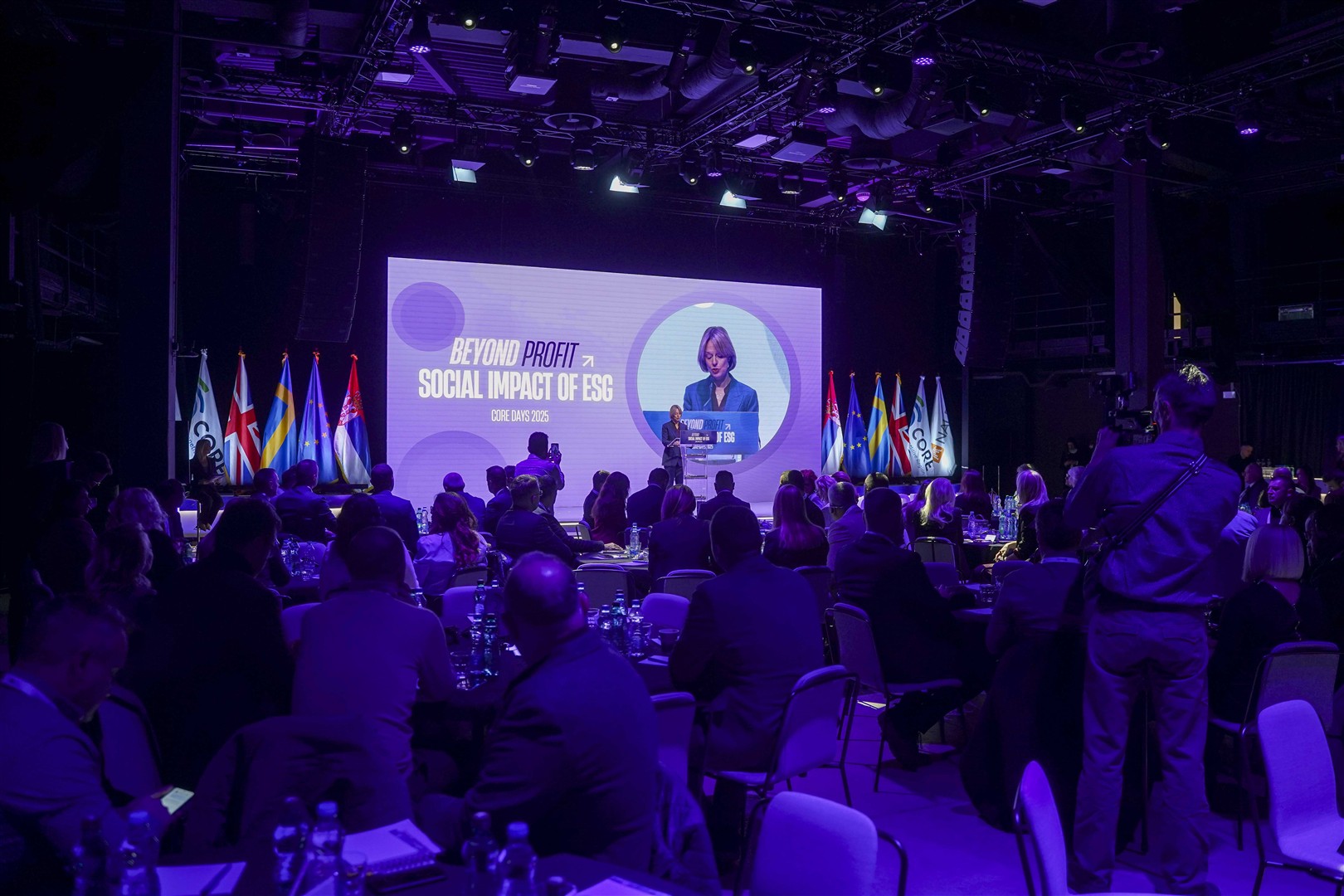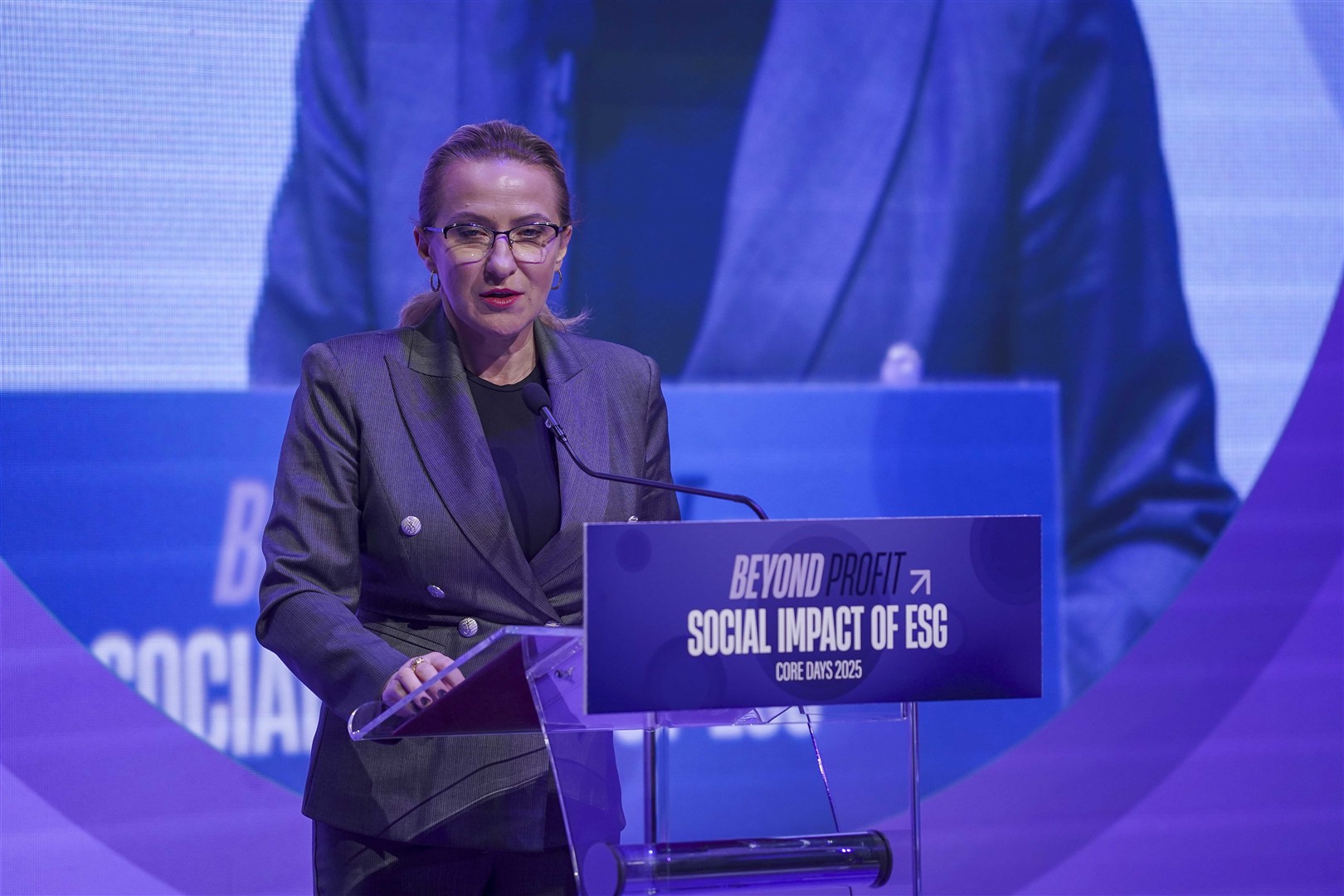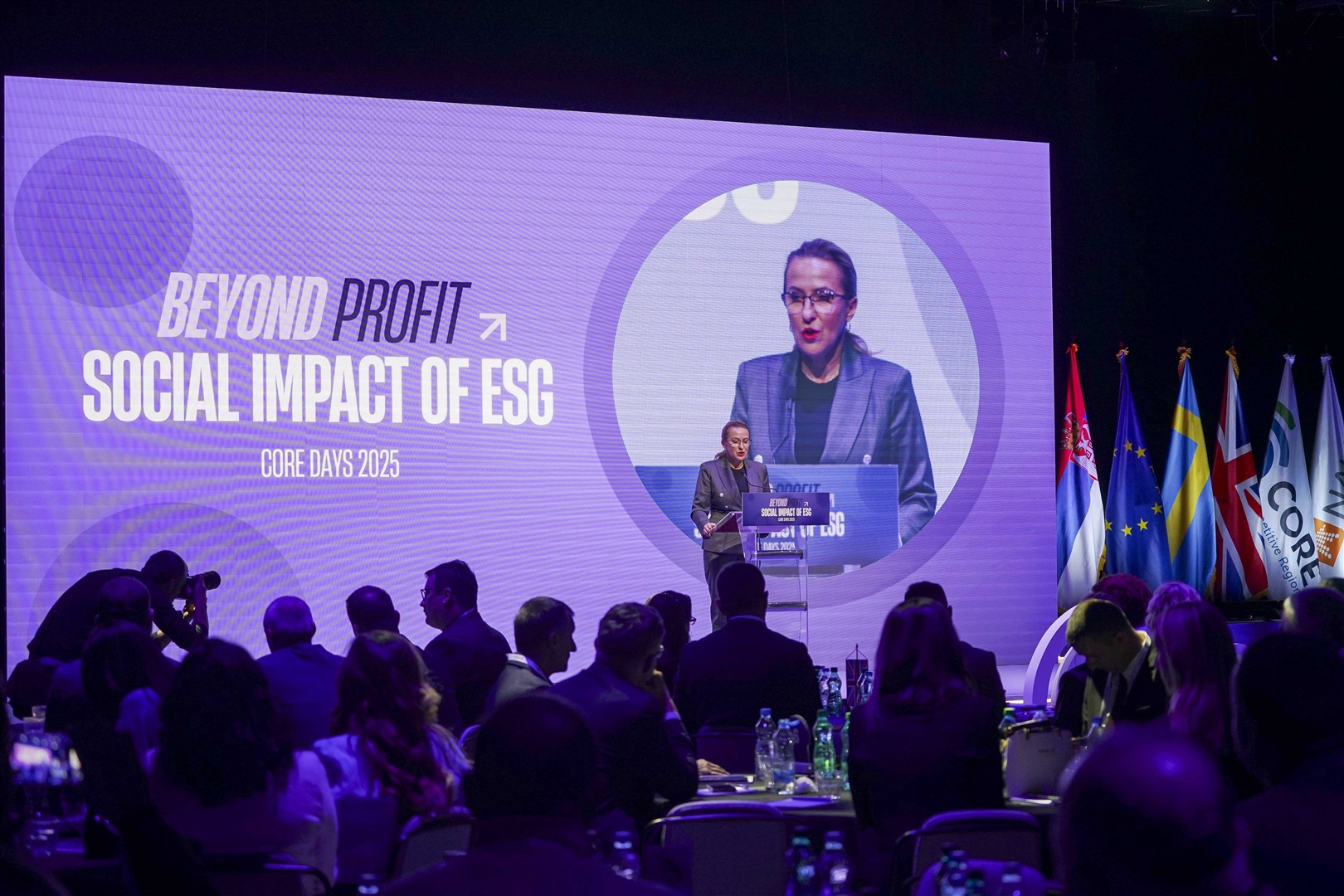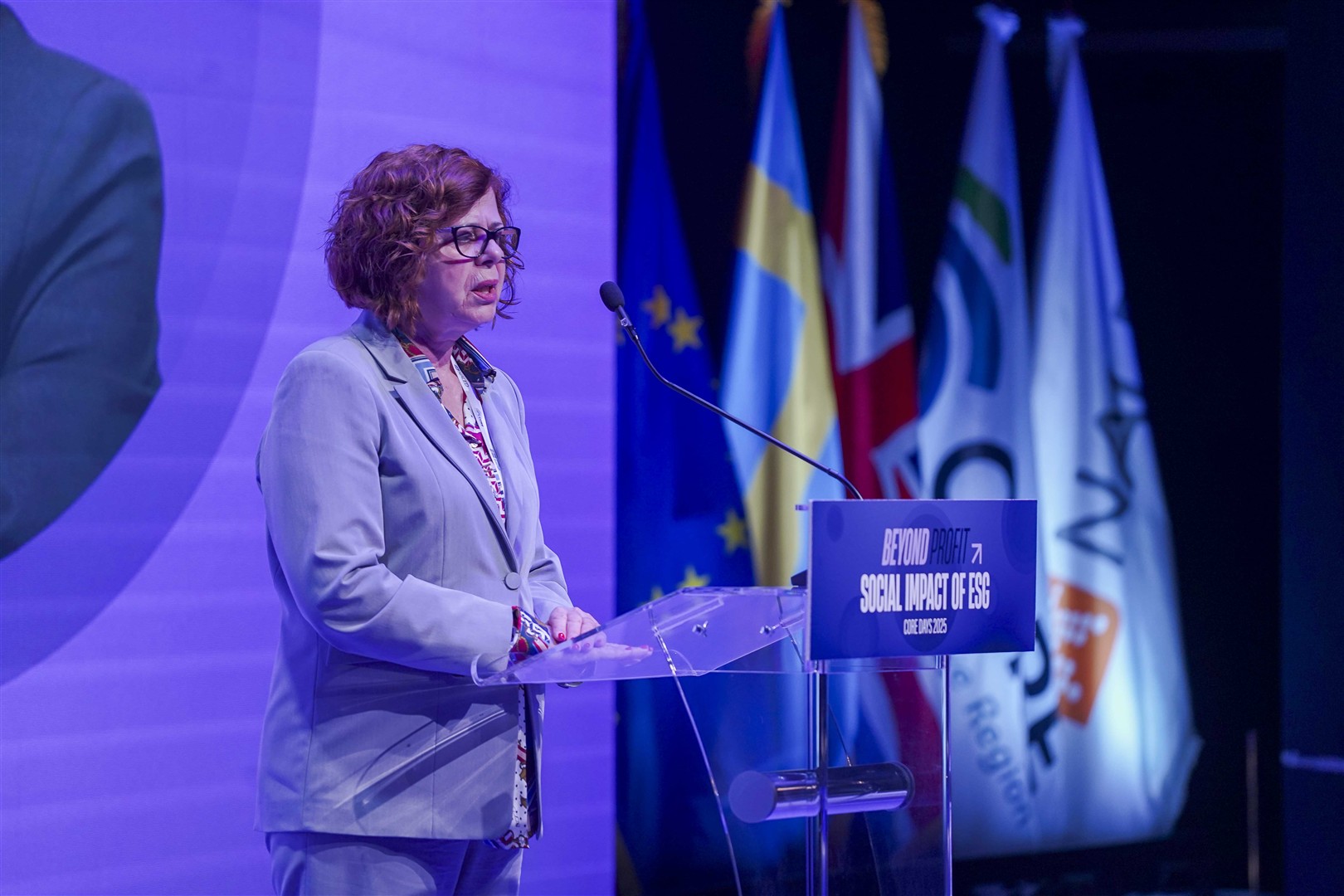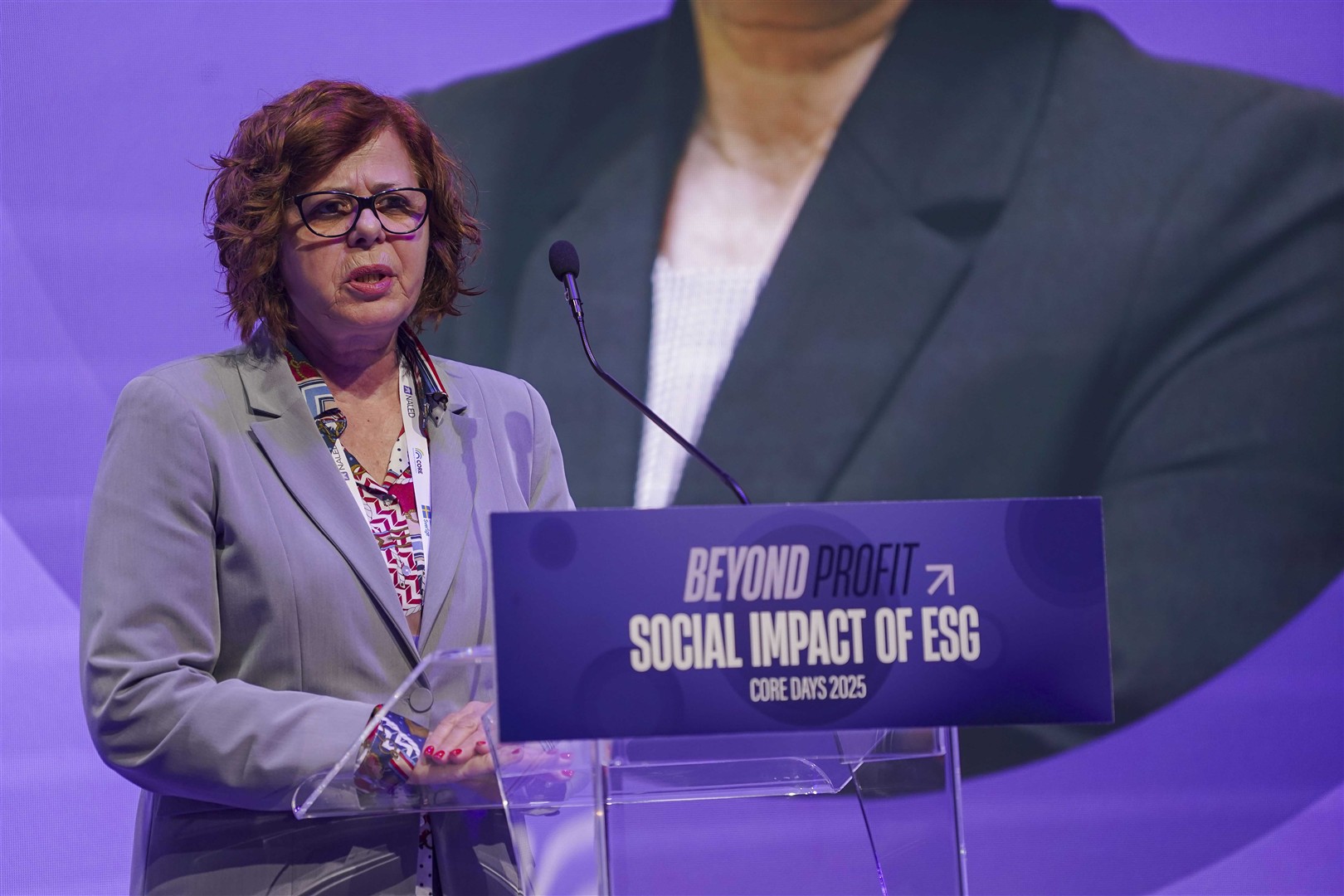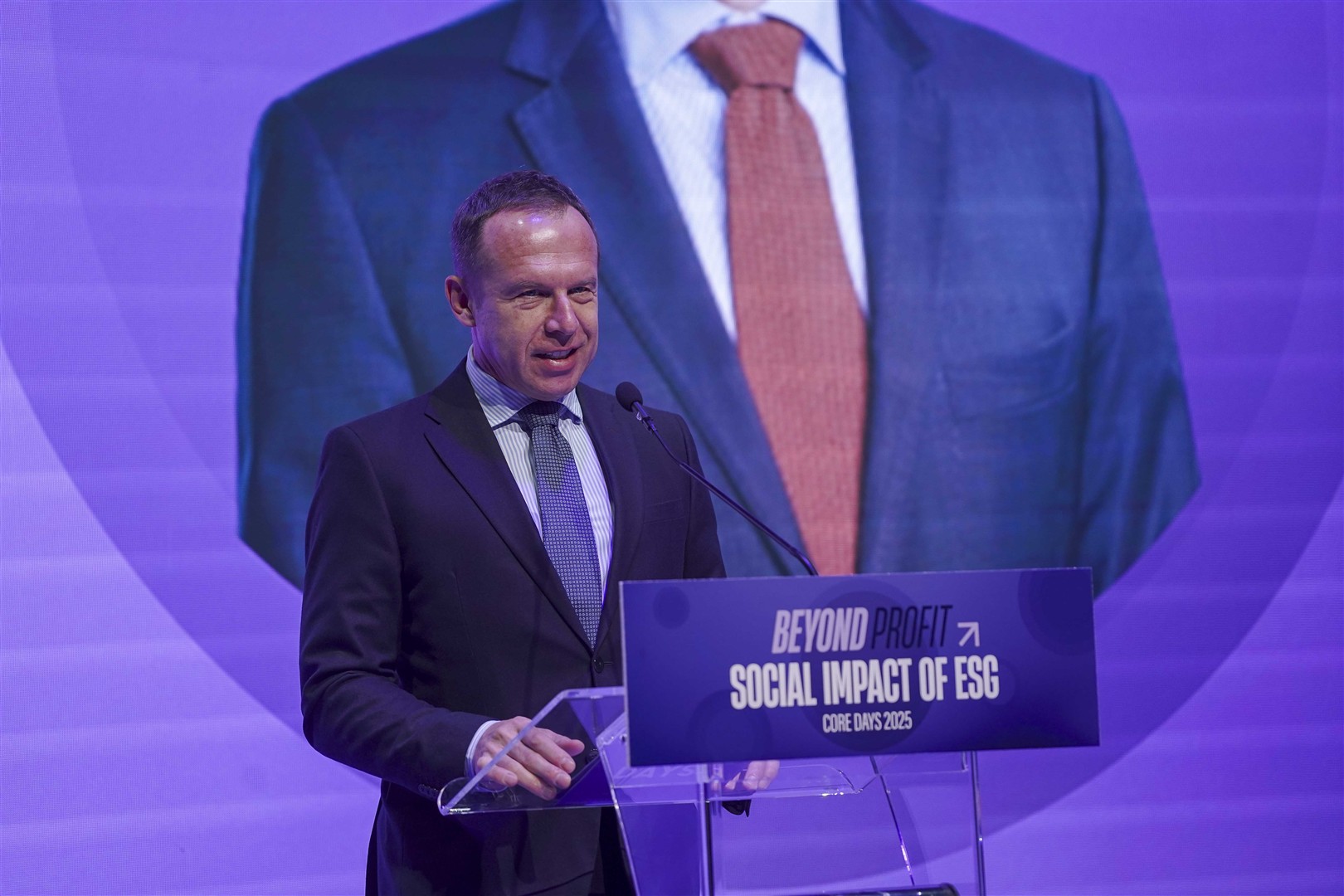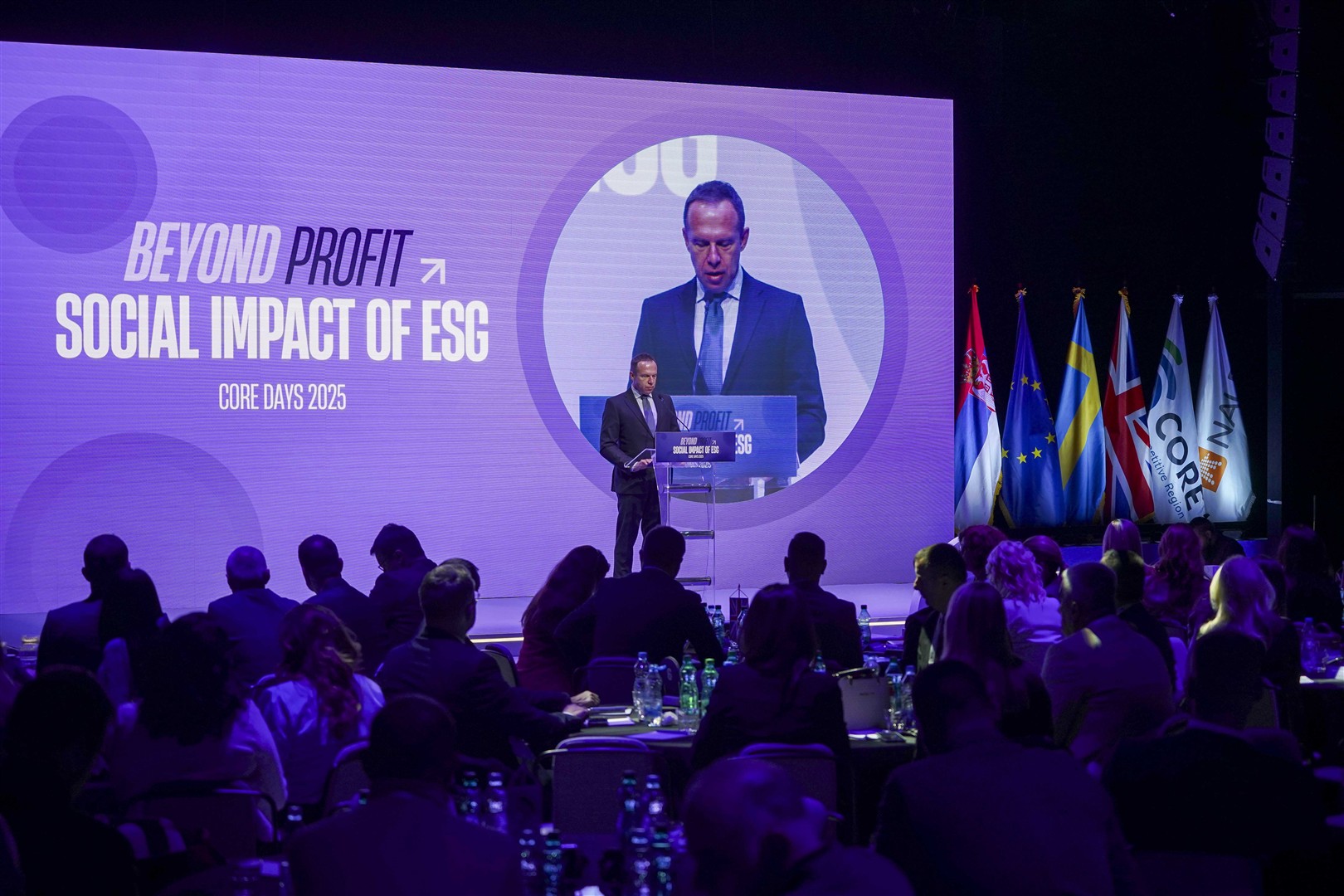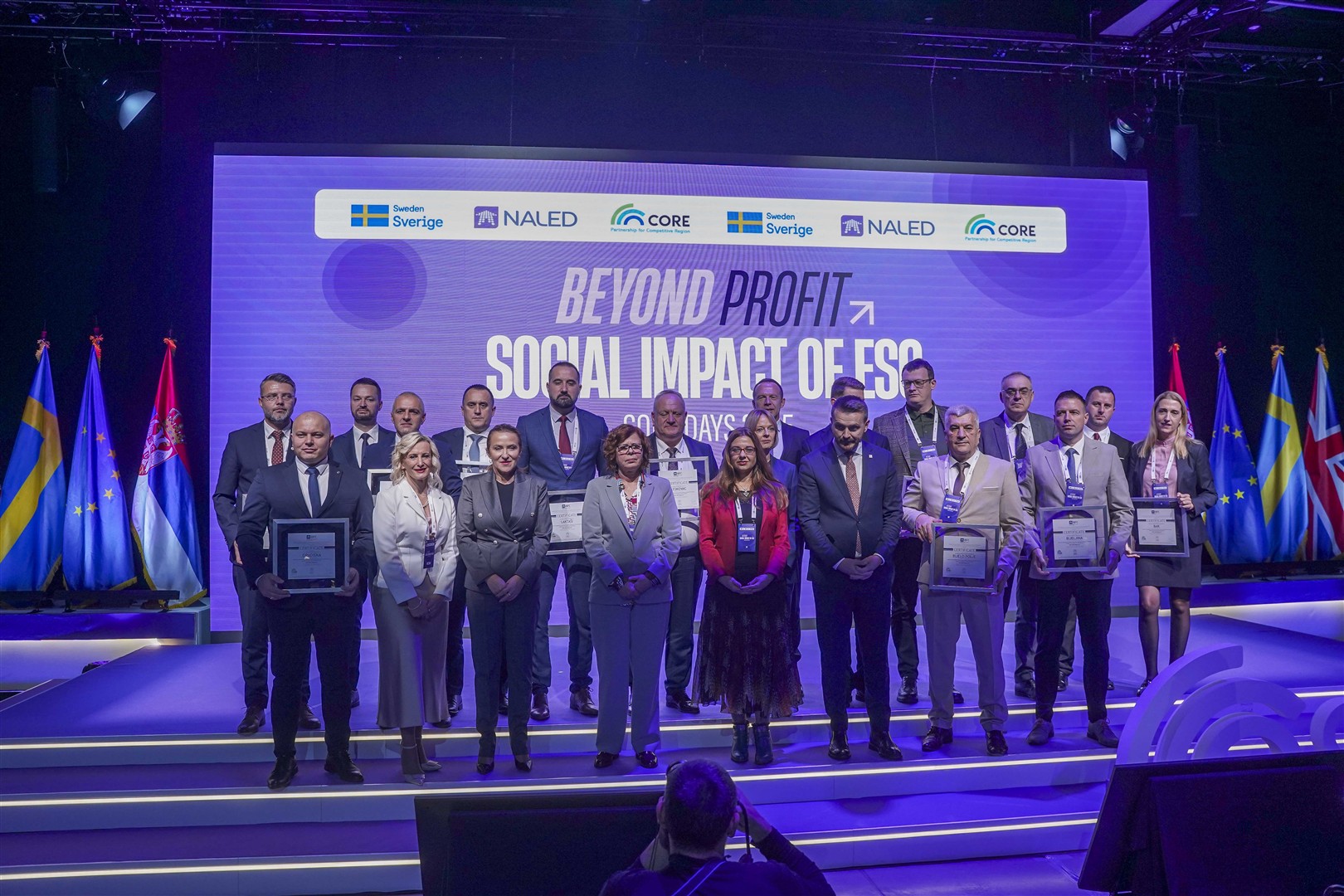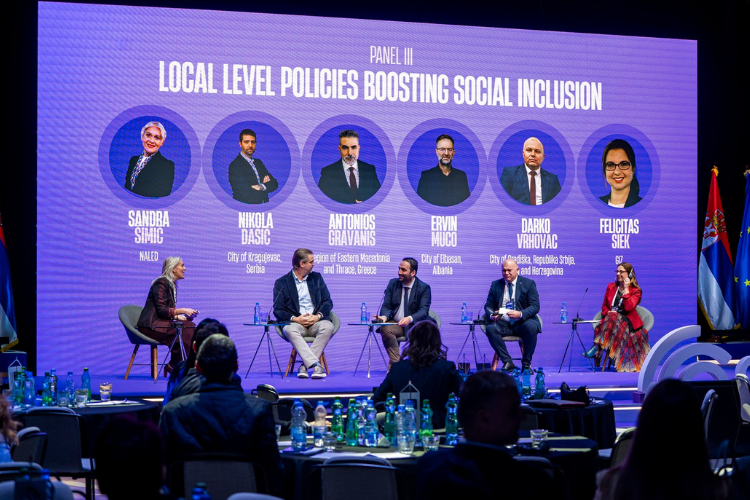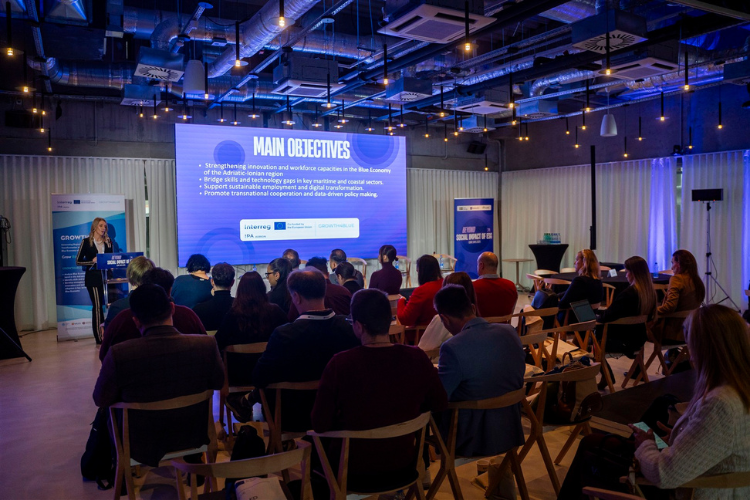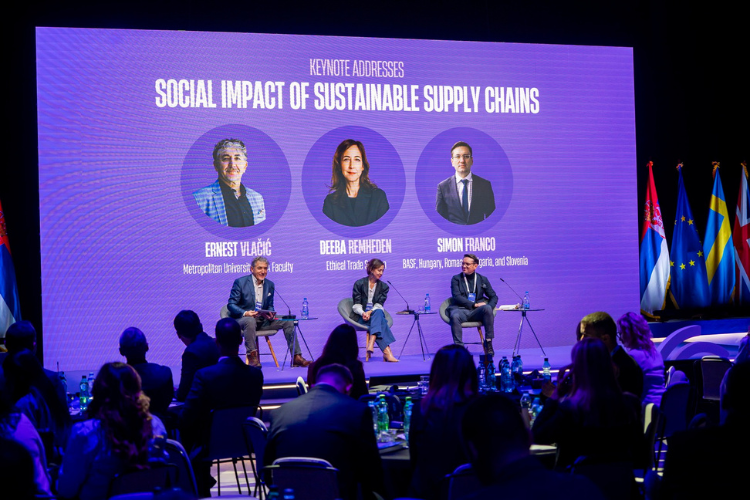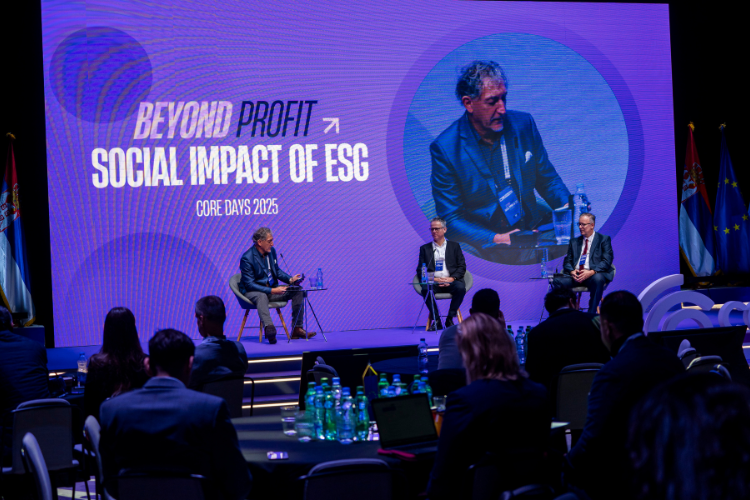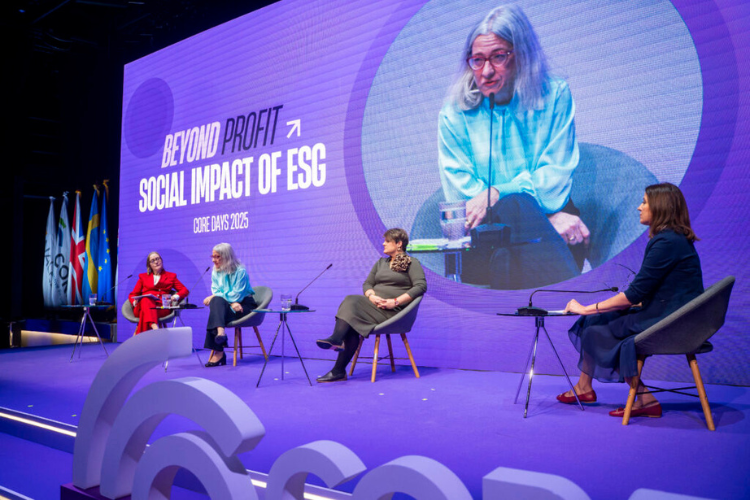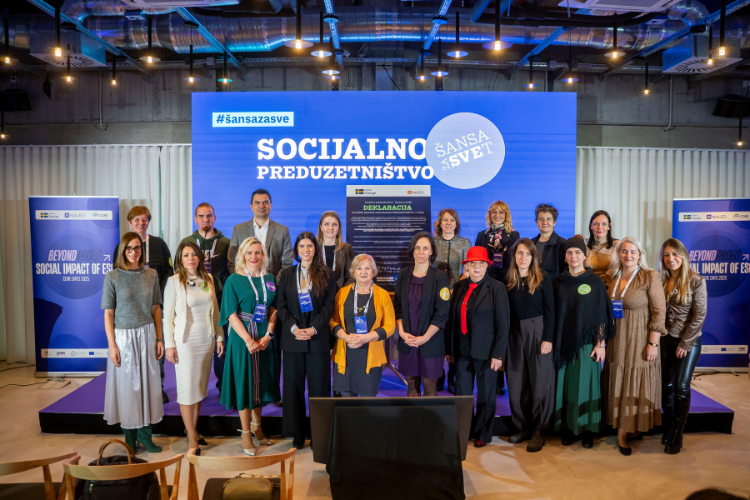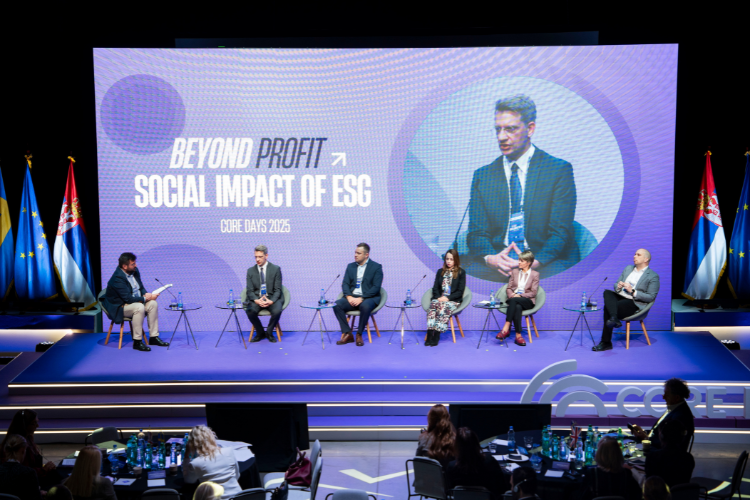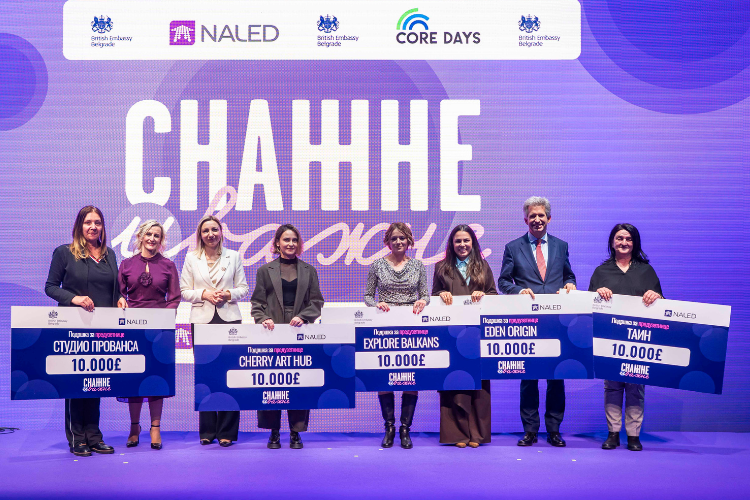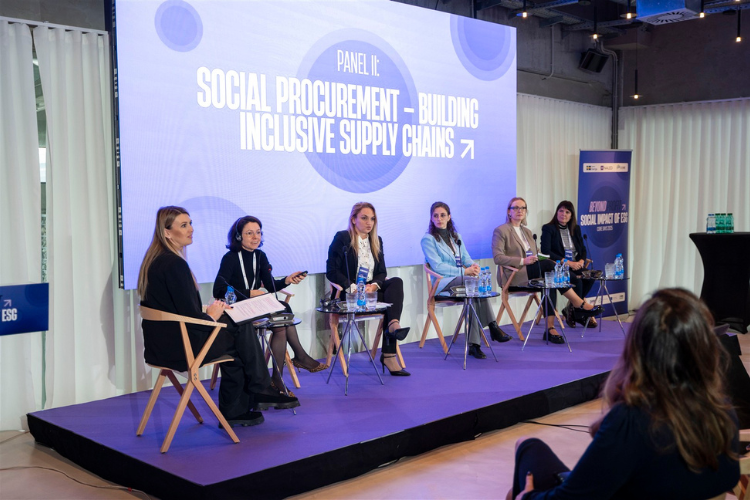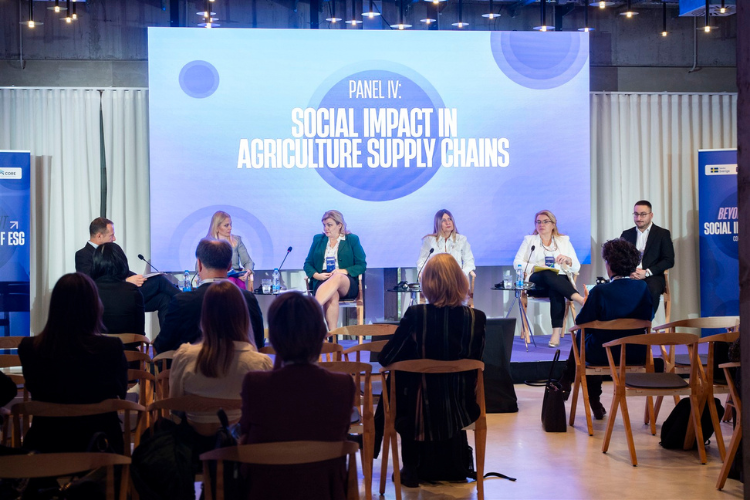Responsible Business – The Region’s Ticket to the EU Market
Socially responsible business practices, and companies that put employees, consumers, and communities at the center, will in the coming years become key drivers of competitiveness, growth, and faster integration of Western Balkan economies into the EU, it was emphasized at the opening of the CORE Days 2025 conference – “More Than Profit: The Social Impact of ESG”, organized by NALED with the support of Sweden.
On this occasion, awards were also presented to 16 local governments from Serbia, Bosnia and Herzegovina, and Montenegro, which successfully completed the Business Friendly Certification (BFC) program for municipalities in Southeast Europe over the past year, earning the BFC certificate that includes standards of sustainable and socially responsible business.
Serbia’s Minister of State Administration and Local Self-Government, Snežana Paunović, underlined the importance of the BFC certificate as a recognizable regional mechanism that promotes good governance standards, builds investor trust, and serves as an example of successful knowledge and experience sharing among local communities.
“The development of local self-government is the cornerstone of state modernization. Cities and municipalities should become drivers of economic growth, innovation, and employment. Good governance means efficient institutions, digitalized and simplified services, transparency, and active cooperation with citizens and the business community,” Minister Paunović stated.
Through cooperation with NALED, Sweden continues to support the strengthening of sustainable supply chains and the introduction of European standards in public procurement to better respond to ESG requirements.
“Sustainability is not only about reducing emissions or protecting biodiversity. It is the principle that economic growth must not come at the expense of human rights, decent work, equality, and inclusion. This includes strong labor rights and social dialogue in which employers, employees, and the state work together to ensure fair wages, safe working conditions, and shared responsibility. It is also gender equality—proven to drive innovation and growth—as well as transparency and the fight against corruption in public procurement and corporate governance,” said Sweden’s Ambassador Charlotte Sammelin.
Regarding the region, Montenegro is intensively working on decentralization and the digital transformation of local self-government, said the country’s Minister of Public Administration, Maraš Dukaj.
“We expect all our municipalities to soon be part of the GSB electronic system, through which public administration bodies will exchange data automatically. This will significantly reduce costs and eliminate numerous barriers. We also plan to introduce a ‘digital wallet’ by 2027, from the local to the national level,” Dukaj noted.
Positive results are also visible in Bosnia and Herzegovina and Republika Srpska, where 17 municipalities completed the BFC SEE program.
“Our goal is for all local governments in Republika Srpska to become recognized for providing security to investors. This contributes to economic development, new jobs, and increased revenues for local communities,” said Senka Jujić, Minister of Administration and Local Self-Government of RS.
Vladislav Cvetković, President of NALED’s Managing Board, emphasized that sustainable growth begins where the private sector and public policies support the same goal—building a more equal and inclusive society.
“Strengthening sustainable supply chains boosts the competitiveness of our economy and brings Western Balkan economies closer to the EU—from where ESG standards and values, CBAM, deforestation rules, and other sustainable policies originate. NALED will continue to work on this in the coming years with support from Sweden, a country that represents a benchmark of best practices in this area,” Cvetković concluded.
The “Core Days” conference, organized by NALED with the support of the Government of Sweden and in cooperation with the Partnership for a Competitive Region, gathered more than 300 participants in the Ložionica venue, including representatives of governments, municipalities, businesses, and civil society from the region and the EU. The goal was to exchange experiences and best practices in applying ESG standards, with a focus on workers’ rights, gender equality, social procurement, social entrepreneurship, and strengthening sustainability in supply chains.
BFC SEE standards and certificate winners
Since 2012, more than 130 cities from the Western Balkans region have passed through the Certification Program of Municipalities with a Favorable Business Environment in Southeast Europe (BFC SEE). So far, 72 local governments, of which 15 from Serbia, have managed to complete the process and obtain the BFC certificate.
A total of 52 local governments from the entire region applied in the previous period to participate in the BFC SEE program, and at the Core Days 2025 conference, certificates were awarded to 16 local governments that introduced a set of new criteria in the area of the environment, circular economy and socially responsible business: Republika Srpska - Banja Luka, Bijeljina, Brod, Gradiška, Istočna Ilidža, Laktaši, Novi Grad, Prijedor, Prnjavor and Teslić; Federation of Bosnia and Herzegovina - Travnik; Montenegro – Bar, Bijelo Polje, Tuzi and Žabljak; Serbia - Leskovac, which received the BFC SEE certificate for the fifth time.

